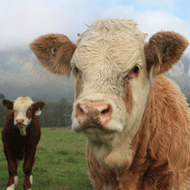TB testing legal challenge withdrawn

Xperior says it is concerned that farmers will have a reduced quality of service.
A legal challenge to the selection process for TB testing delivery partners in England has been dropped.
One of the bidders, Xperior Farm Health, brought the challenge against Defra and its responsible agency, the APHA, after it was revealed that all five delivery partner contracts were awarded to the same veterinary group.
Xperior is a collaboration between two veterinary businesses, Eville & Jones and Westpoint Veterinary Group. It has raised concerns that awarding the contracts to the same group at "unfeasibly low bids" could result in a seriously reduced quality of service for farmers, whilst threatening the viability of many rural veterinary practices.
However, the group withdrew its legal challenge on February 5, as it did not have time to build a case in the "aggressive timetable" set by Defra. Xperior director Matt Dobbs said it is Defra's responsibility to investigate the claims.
The group remains concerned that the proposed payment rates for TB testing are significantly lower than those put forward by other bidders.
"The consequence would be either unfairly low payment rates for official veterinarians (OVs) who conduct TB testing, or an influx of inexperienced vets, potentially from other countries, into low paid positions," said veterinary director Phil Elkins.
"The loss of TB testing income would also challenge the viability of some rural veterinary businesses and the relationships held with their clients."
Lack of competition between delivery partners could also lead to a reduced quality of service for farmers, Xperior says. TB testing may be delivered by unfamiliar vets rather than their own, with whom they have a relationship of trust. Mr Elkins says this conflicts with the original vision of several competing partners.



 HMRC has invited feedback to its communications regarding the employment status of locum vets and vet nurses.
HMRC has invited feedback to its communications regarding the employment status of locum vets and vet nurses.